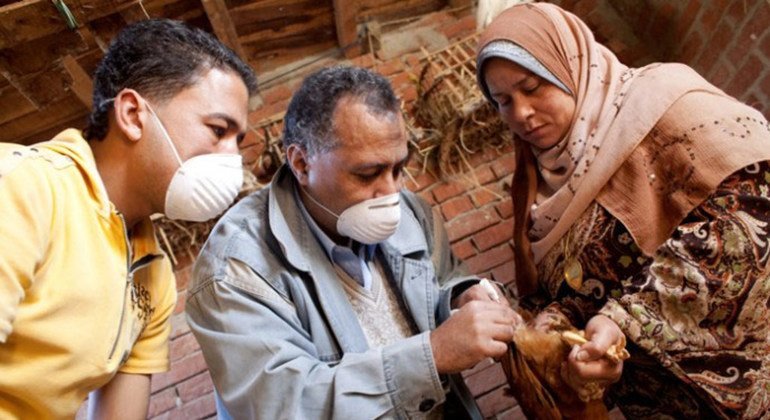The World Health Organization (WHO) spokesperson, Dr. Margaret Harris, recently addressed reporters in Geneva about the H5N1 virus causing illness in humans. She emphasized that the virus is not circulating in humans but is instead jumping into humans who are exposed to poultry or dairy cattle. Dr. Harris clarified that there is no sustained circulation of the virus among the general population.
The individual who succumbed to the disease in Louisiana was identified as being over 65 years old and had underlying medical conditions, according to Dr. Harris. The man had been in contact with chickens and wild birds, leading to his exposure to the avian influenza virus. Throughout the current outbreak, several dozen individuals in the US have contracted bird flu, primarily farmworkers who have close contact with poultry flocks and cattle herds.
Dr. Harris stressed that the overall risk to the general population remains low, with the main concern being for individuals working in animal industries who need enhanced protection from infection. She mentioned that the United States is actively conducting surveillance in both the human and animal populations to monitor and address the situation effectively.
In addition to the avian influenza outbreak, a respiratory virus known as the human metapneumovirus (hMPV) has been gaining attention in China. Dr. Harris assured that this virus is not a new or significant threat, as it is a common occurrence during the winter season. The Chinese Center for Disease Control and Prevention reported that seasonal influenza remains the most prevalent respiratory infection in the country.
Dr. Harris explained that China’s levels of respiratory infections are within the usual range for the winter season, with no emergency declarations or responses triggered due to hMPV. She clarified that hMPV was first identified in 2001 and has been circulating in the human population for a considerable amount of time.
The hMPV virus typically causes respiratory symptoms similar to the common cold and poses a very low risk to the general population. While it can lead to more severe illness in individuals with compromised immune systems, such as newborns and the elderly, the mortality rate associated with hMPV is described as very low by Dr. Harris. She recommended simple preventive measures like wearing a mask, improving ventilation in enclosed spaces, and practicing regular handwashing to reduce the risk of infection.
Overall, Dr. Harris reiterated WHO’s assessment that the risk of avian influenza and hMPV to the general population remains low. Continued surveillance, proper hygiene practices, and enhanced protection measures for individuals working in animal industries are crucial in managing and containing these viruses effectively.









